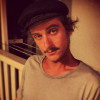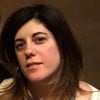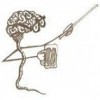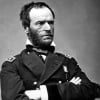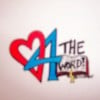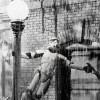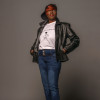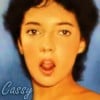I want to write a book... but where/how do I begin?
This question is directed to anyone who has written, or is currently in the process of writing a book. Can I pick your brain? I am simply seeking some advice/tips from you hub authors out there who are also book authors.
ie: Where did your book idea originate? How much time did you devote to research and formatting? Was your plot and/or storyline set in stone beforehand or constantly changing/updating while writing? Was the book a success?Well I have published some books but they are either poetry or lyrics, though one also has some prose in it. I did not have to do any research for my books but as far as formatting and editing, I spent a lot of time on that. I'd say weeks and for some even months.
Now I have decided to try a hand at writing a novel. I realized that my original idea for the story changed as I began writing the novel and getting more into it. And that's ok. I think changes in the story (plot) from the original is inevitable. And that's what makes writing a novel so much fun. You never know where the story will take you.Do you want to write a book or do you want to write a book and try to get it published?
ANYONE can write a book.
Also, these days, anyone can get it published IF they are willing to spend a little money.
One good piece of advice: "Write what you know."Writing a book, and getting it published, is something that i want to do. I tend to like writing about either things I have experienced myself, or things that I know a little bit about and require some research. That is the extent of my thoughts on writing a book so far. That advice seems obvious, but it's really not. I can see how writers stray from what they know, towards what they think will pay. So thanks for the advice.
I have a hubpage on how to write a book on a shoe string budget which describes the editing tools etc. that one can find for free or at low cost. I am also writing a serial Western on hubpages with advice at most chapters on how I wrote that section. Check it out.
It has to be a call to write,you need to know you are meant to write ,don't force yourself,you will be given the signs of you have to.The start,when it has to get over it will.
Took me four years before I was satisfied with my book "Ponder Awhile"
I kept polishing the book as I was not happy.This was a full time job, I did nothing apart from work on my book for four years,nothing else was more important for me.
I had to share god knowledge with simplicity ad clarity to unite the religions was my basic plot,share my story in a human way so man can connect with It,understand god..
Its doing well
Best Book Buys Rankings
Poetry 1.Ponder Awhile
Body,Mind and Spirit.2.Ponder Awhile
Philosophy10.Ponder Awhile
Franklin rankings
overall-11.ponder Awhile
Top Spiritual and Religious 1.Ponder AwhileHi, I just want to let you know that your imagination is your greatest tool in writing. Start by letting it go and then write your thoughts as they develop. You may think at first it is too cumbersome to collect them all at once, you don't have to, just pick out what you think others will like and go from there. Stories can develop from the simplest things, I begin with mine by creating a character and place where the story evolves from. Don't be afraid to let yourself go. That's why they call it creative writing. Best Wishes, Robert M de la Torre.
This is a great, great blog that'll help you loads and have all sorts of advice to write well and to get your work published: iwanttowriteabook.tumblr.com
I have been writing for years now, and I have to say , each story gets re-writtien several times as i progress through it. Usually once a great idea strikes me, I write it down, usually this is fed by nightmares as I write horror. I eventually sit and write an outline and then begin writing. I keep going until I am satisfied the story has reached an end.
You start get you favotie books and tacking this from them you liked and make it into a book good luck
I went on to a site called Writers.com. Don't know if it is the answer, just got there myself, but it seems to be really cool.
Fiction or non-fiction? Biography? Autobiography? What you'll probably realize is that you have a key idea and a setting. Well that's how I was impelled towards writing my three works of fiction: Searchtime Expired, Sailor Boy Blue, and The Sealers, each of which was quite different.
Once that key idea is formulated, the rest seems to come together. My advice: start anywhere: middle, end, opening. I started with a prologue on my first yarn. It set the atmosphere. At book's end, I wrote an epilogue, which kept the mood continuing (hopefully) in the reader's mind.
You will find yourself having sleepless nights. You will become absent-minded about house-hold chores and your normal daily work, for your mind will seem to give you little peace as it pours out its creative ideas. You'll find yourself making notes in the middle of the night, or pulling over the car to write something down before you forget it. Be prepared to live a rather abnormal mental life until that book is complete.
Still want to do it? Then go ahead. And if you do complete it then...you'll be a writer.I am familiar with those displaced thoughts and absent mindedness, as well as the little peace that writing provides...but only on a small scale (hubpages). I am excited by that and would like to tackle something greater, if not now, in the near future. I guess my first move is to decide just what I want to write about, and just start writing. Thanks for your advice
begin, at the end - really - try that and the book will role out quicker

Hmm...that's an interesting piece of advice! After I finish writing my next chapter, I may just have to skip to the end to write that out as a way to visualize the end goal that much more concretely.
Begin with the end in mind and put first things first.
I started by writing my life story as a hub - I've always wanted to write it into a book so...since I joined HubPages to write, I figured, Why not? Now I'm working on writing it into a book. For me I had to start with my life story because I had no idea how to create a story. Having a ready made story with pre-existing characters makes it easier to understand how to write a story. I already have an idea for a completely fictional book - something I've never had before.
For me I had to start with my life story because I had no idea how to create a story. Having a ready made story with pre-existing characters makes it easier to understand how to write a story. I already have an idea for a completely fictional book - something I've never had before. 
I think it really depends on if you're writing as you create it or it's all set out in your mind. And of course where the big events happen - in the start middle or end of your story.
I'm currently *trying* to work on a manuscript. Based on my life. I got sick of deciding how to start. So I'm just writing what happened and I'll put it all together later - remember, if you plan to get it published it probably won't look a whole lot like your first manuscript anyway.
Marisa Wright has some good hubs on publishing and writing books.Thanks WryLilt. I will check out Marisa Wright...I am even a follower of her and haven't read any of her hubs on publishing or writing books. I guess I keep putting it off because writing a book seems like such a daunting task when you are like myself and not sure what to write about. My life story so far would be a semi-interesting read, but I haven't thought about putting it all on paper. Good luck with yours...
I have to say, what got me to write a novel was National Novel Writing Month (NANORIMO). Throughout November, you write a novel of at least 50,000 words and "win." Of course, the prize is simply the satisfaction of completing something. I am so pleased with mine that I am trying to find time to add to it, edit it and otherwise see where I might go with it.
I just finished a novel manuscript first draft yesterday. 292 double-spaced pages, 79,660 words. It is the fourth time I have sat down and done so (although I sort of don't count one of them any more it's so bad). I started on June 5th, set myself a goal of writing 1800 words a day, five days a week minimum, but with a minimum commitment of 1/2 hour no matter how I felt because I know how hard it can get sometimes.
I only took 6 days off, never once wrote the minimum half hour, had only two days under 1800 words (1 @ 1400 and one at 1500), and had a few days well over 4,000.
I have a full time job, a family, and I published 2 hubs in that time. I also had an outline, but it was a guide not a book of law. The core idea held together, but I had several intersting surprises including two characters I hadn't banked on.
In my opinion, the only way to write a novel is to pop the mystique of the words novel and book and instead buckle down with the certainty of the word discipline. If you need to research, do it first (although, minor fill in details for authenticity can be researched later... like correct flora types for a setting etc.)
I have no idea if this book will sell, but I do have something that is written and in position for me to revise and edit over the next several months or year and possibly make something of it. I definitely think you should finish a draft to the end before revising and messing with it. Until you're "done" you don't know what you have.
I hope this helps.wow...the schedule you followed is very impressive. much needed discipline. this is very helpful...thanks for the words and good luck with the future of your book.
- china manposted 13 years ago
0
Well done Shadesbreath - I would say this is the first key - sit down and DO IT.
I would also recommend doing the research first, for instance, if it is about strange characters then research the mental illnesses and characteristics of your characters. Make sure you know the places you are going to set them in. And know what it is about before you start, whther it is going to mysteriously unwind itelf from the base of your mind as it goes along or run to some kind of framework plan. I have written three e-books.
I wrote an outline and then chapters as I felt inspired. Then I printed them out and spent a few hours arranging them and then some filler material as needed. Repeat twice more.
I don't think I'd ever have the energy to do another :-)My first point would be to write... and don't stop.
Then review and draft an outline from what you have.
Then fill in and expound upon the points of interest or story-line, charactors, etc.
Then write some more.
Then repeat step 2 and so on.
And then repeat it again... and again... and again, etc, etc...
Because no matter what you think. There is always more that can be done to improve upon your work.
And above all... do not stress if you cannot write what you want... just write what you can. And work from there.
And do not in any way worry about writer's block, it will crumble one day and off you will go again.
Usually writer's blok is just your minds way of changing the subject for a while, well your subconscience works it out.
I would also advise an independent editor, someone not afraid of hurting your feelings when they critique and edit your work.
Not friends and family.
Thats all I got for ya.i had to write a lot of this down for future reference. thanks for the good advice...
I think you are on the right page:) Learning from those who have gone before you! Might think about going to a writing conference:) I myself, have much to learn before looking into writing a book. Sure you will find great tips, on this forum:)
- TransScribblerposted 13 years ago
0
Think of something that you know and care about. Then, after applying your backside to your chair, apply yourself to writing your book. I have been fairly lucky on the research side, as most of my writing is based on or inspired by events, people and places in my life. I find that - apart from the actual writing - most of my time goes into layout, design, which pieces to include in a collection, and so on.
Hope that this has not scared you too much. Good luck, and I look forward to progress reports. 'How to Write a Damn Good Novel' by James N. Frey is the best place to start for anyone thinking of writing a novel for the first time.
I'm in the process of writing a novel. :-) In my opinion, the main thing to remember is writing a book is completely different for everyone, and although authors can give advice and ideas for methods they've found helpful, you may find it just doesn't work for you. I find reading books about how to write a book is a little awkward; you may as well just sit down with a pen and paper and try to get some ideas and words flowing (still, if it helps you go for it! It is fascinating stuff). Reading just normal novels, your favourite genres and styles, is most helpful; you learn the craft through emmersing yourself in the art.
Where did your book idea originate? I wrote a short story after thinking about the fact that most books about murder are written from the point of view of a policeman or detective, but not the murderer themselves. I thought it would be fascinating to explore this more, what made them do it, who would do such a terrible act and what emotions would it provoke in them? With these questions, the characters leapt up fully fledged and really started writing themselves for me. I do carry a pen and paper around with me and write down lines that suddenly jump into my head, or note down a particular person or object which catches my eye and inspires me.
How much time did you devote to research and formatting? A lot. I have had to do a lot of research in psychological theories and problems. One character has problems with drug use, and I spoke to other people who had struggled as well as some of the rehabilitation centres to make sure that the experience the characters go through is as real as possible. I am a research addict though, even down to researching the weather on a certain date - I love those little details.
Was your plot and/or storyline set in stone beforehand or constantly changing/updating while writing? It didn't change but it did expand. I wrote the synopsis and chapter one before planning about 15 chapters. I now have 50 but I don't think it will expand any more.
Was the book a success? Haha. It's currently unpublished. I've had some success with poetry and have got into a degree to study english and creative writing, however, the book will be finished by September and I'll be looking for an agent.
I hope this helps. Good luck and have lots of fun!Book ideas can start from anywhere, and the only thing I can really offer in the field of advice is to always write. Somewhere, Stephen King said "Write two thousand words a day", and I try to live by that rule.
As for plots being set in stone. No, they never are. If you concoct a good story, with great characters, it will eventually take on a will of its own. Of course, you can guide it, but when you develop a character a certain way, you won't ever want to take him/her out of character. It's hard to explain, but I'm sure most writers know what I mean.
Research and formatting is completely up to you. It is your book, so technically it doesn't have to be truthful to anything, but of course, a lot of people prefer well researched books. So really it depends on what you are writing about, and who your target audience is, if there even is one.
I hope that helped, at least a little.
-DMGRight now I do most of my writing on HubPages. But maybe that will change. My ideas come from all kinds of things and once I have an idea and a character or two to live the idea I just dive right in. My latest hubpages story is a 3 part series of fiction about a guy who has erectile dysfunction. I thought it was going to be a funny subject, but it turned out serious - just finished it yesterday and it was a lot of fun to write. I am learning alot by writing this way and publishing each section as soon as its finished. Its the only way I can get anything done. As soon as I feel I'm getting better at it I will possibly start a real novel and complete it before I publish anywhere. Someday I'd like to make some money - but right now that's not my main motivation. I do some research, not as much as I should - but enough to make the stories sound real - probably a couple hours for each section to fine tune the background. Important to write notes about your ideas and characters as you think of them - makes it so much easier to do the writing.
when i first started writing i was the same way, i couldn't get my ideas together or decide how i wanted my words once they were on paper...so i used the "SCATTER METHOD" HOW THIS WORKS IS YOU CHOOSE TWENTY WORDS SOME ADVERBS, SOME NOUNS AND ETC. USE ALL TWENTY WORDS TO FORM A STORY THEN READ IT ONCE YOU ARE DONE. KEEP DOING THIS DAILY UNTIL YOU GET BETTER AND QUICKER AT WRITING AND FORMING YOUR IDEAS...THEN ONCE YOU FEEL COMFORTABLE ENOUGH TO PUT YOUR IDEAS IN MOTION IT WILL BE A TOTAL BREEZE...GOOD LUCK AND I WISH YOU ALL THE BEST
writing as everyone here has given great advice.. coems from any and everywhere..
either follow protocol or just jump in and do what i did.. inspiration hit me when i least expected it and words formed without my even being aware of it.
as for what or how.. food always helps me.. (ok, normally chocolate)you'd be surprosed what you can come up with when you're hungry..
My partner is writing a book of romantic short stories based on me, of all things. One book I always see lying around is the "Writers & Artists Yearbook", and it gets referred to copiously. I also dip into it as I write poetry, and I have some loose ideas running around like marbles in my head. We are unpublished as of so far, but we are changing that in the future.
My best tip is have a passion for what you do, If you have passion, you will never stop writing.
(Cathy)Just finished my second in a series. I guess now it's a series because there's more than one with the same characters.
I have to disagree on "anyone can write a novel" technically. It takes mass amounts of discipline. Every serious writer will tell you the same thing.
Research what you don't know. Use what you do know - your experiences turned into your character's experiences, places, events, etc. You can even draw from conversations you've had and put the words into your character's mouth.
Everyone has a different technique. Some outline the entire book, some wing it from beginning to end, letting the story unfold, some have an idea for an ending or a beginning and work the rest in.
Sometimes, you just see something and the whole story flashes before you. Then you just work out the details, (like getting it down on paper).
Fomatting comes when it's all done, edited 7 times and you feel it is your best work.I have written three "techie" e-books. In some respects, it was easy because I could write each chapter independently and then tie them together in a sensible order.
But, oh, the tying together! I had chapters spread all over the floor, arranging and rearranging and adding more paper between them with notes on what I might need to add to make them flow.
A lot of work, but worth it. I make decent money from these.I have written 2 books, one is published. It was also republished 10 years ago. The other is still in manuscript form. I agree with @couturepopcafe not anyone can write a book. For me writing about life experiences, and giving it a fictional color worked very well for me. The toughest part is getting started. Once you get started commit to writting everyday, even if it is just one or two pages. I love the early mornings, so writting at 5 or 6 a.m. worked for me.
Let your passion lead you, and not the other way around. I hope something I said was helpful.Begin the book where the story starts. Writing is easy, we can all do it, we just get the thought(s) out of our head and onto paper or the screen of the PC. Organising it can happen later. I say just get it all down first. Get everything written. Then stop, go back and organise it and change or edit or delete what you don't like. Cut out what is not relevant or "cul de sacs" these are diversions down pointless rabbit holes that serve no purpose.
Start with an original idea or event or experience, whether yours or someone else's. The sky's the limit here. Lots of people are writing their own books or book. Even I am writing a series of short stories for a book based on three of my Hubs in the Encounters Series. And it was Hubbers who suggested it to me, not my own idea. The more I thought about it the more I wanted to do it. Writing becomes a near-obsession at times. It is starting to get in the way of lots of things in my life. Writers tell me that's a good thing. Once you begin writing that book, you will want to go on writing more...
Related Discussions
- 20
Has anyone tried writing a novel lately?
by Deah West 7 years ago
I am currently working on three novels and I was wondering about the voice I am writing in for one of them.I started writing in first person passive I think and then switched to third person omniscent and have to change all my first person to that third person voice.In addition to this I have a lot...
- 16
Anyone have good advice on helping with writers block while writing a novel?
by Kristen Mazzola 10 years ago
Anyone have good advice on helping with writers block while writing a novel?I am currently writing my first novel and I am stuck right in the middle. I have a little over 30,000 words written and I have found myself unable to let words flow when I sit at my computer to write. Any ideas?
- 100
In Your Opinion, What's The Hardest Thing About Writing A Novel?
by setareh 10 years ago
There are a LOT of challenging things about writing a novel, as i'm currently working on one. I'm I'm on page 203 and am still far from done and i don't mean length-wise.In my opinion, creating complex characters that win over an audience is.Why don't you share your thoughts? I'd love to...
- 7
Which is more difficult? To begin writing a novel or to finish writing a novel?
by Leslie Lee Sanders 14 years ago
Which is more difficult? To begin writing a novel or to finish writing a novel? Why?
- 11
What fantasy cliches should be avoided when writing a novel?
by Simon Cook 11 years ago
What fantasy cliches should be avoided when writing a novel?I am an amateur fantasy novel writer but feel I may get trapped and add the same old cliches into my work - what cliches should be avoided, and watch should I always include. Examples of books (and reviews of them) which use good cliches...
- 18
Help and advice required!
by Jacqueline 13 years ago
So I am taking the plunge into my first ever novel. It will be historical fiction....I have begun writing books before but lost interest in my own story lines lol usually due to not having the whole story thought up before starting but I am significantly excited about my new idea and the whole plot...
